Smart, Hirsch, Parfit, Hofstadter Added; Locke, Bentham, Carnap, Mackie, and Others Updated
Here is what I’ve done since the last update (when we were still able to go outside without masks and gloves):
- John Jamieson Carswell Smart, Eli Hirsch, Derek Parfit, and Douglas Hofstadter are added.
- John Mackie got a substantive revision with 15 new sentences.
- Sentences are added/edited for Aristotle, Epicurus, Saint Augustine, Thomas Aquinas, Thomas Hobbes, René Descartes, John Locke (2), David Hume, William Paley, Jeremy Bentham (3), George Edward Moore, Rudolf Carnap (2), Frank Jackson, Tim Scanlon, and David Chalmers.
- Dozens of new connections are drawn.
Mackie is a unique moral philosopher I felt very close to and I’ve been wanting to study his Ethics: Inventing Right and Wrong (1977) for a long time; I finally did it and updated him with 15 new sentences. (And now I feel even closer to him.)
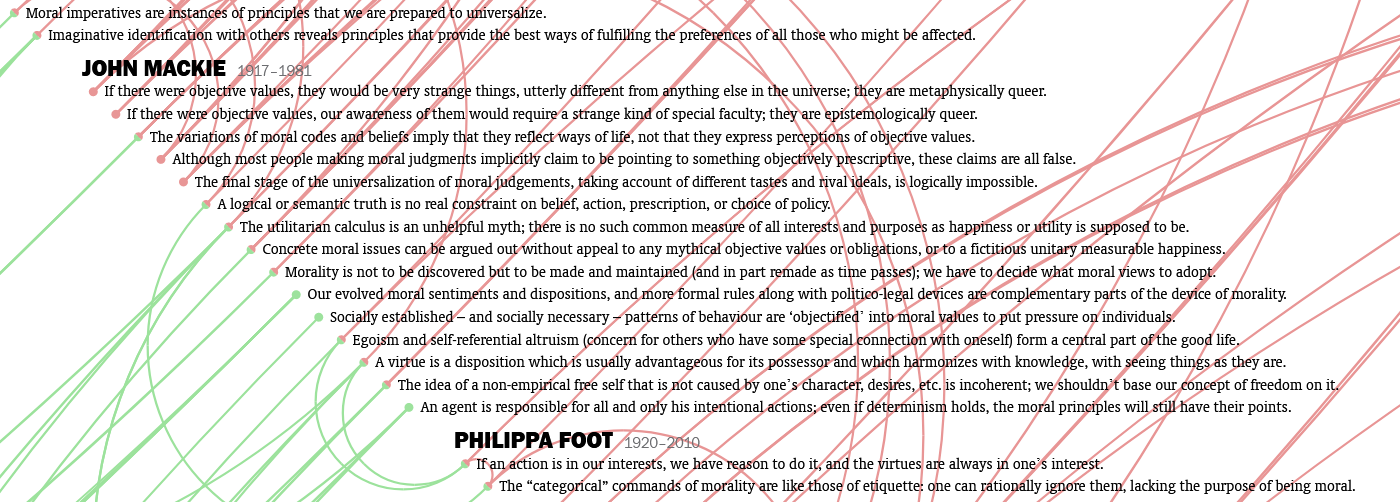
A nice surprise when I was reading Mackie was this:
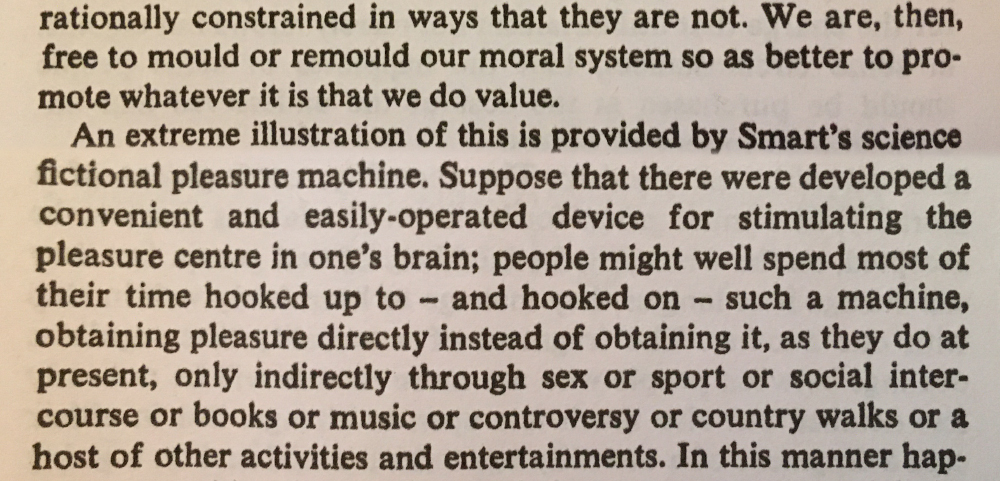
The idea of a pleasure machine replacing normal life is usually associated with Nozick; his “experience machine” from Anarchy, State, and Utopia (1974) was already present in my summary. Here, I learned from Mackie that Nozick was actually preceded by J.J.C. Smart. I found Smart’s discussion of pleasure-giving electrodes in his An Outline of a System of Utilitarian Ethics (1961):
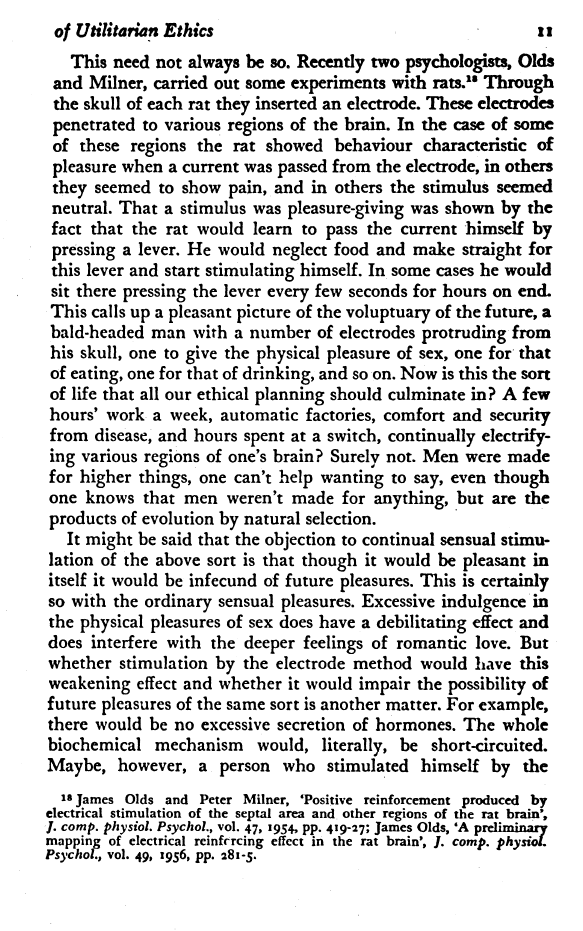
Nozick doesn’t cite Smart in his 1974 book. I tried to make sure I wasn’t missing something: Fred Feldman also writes in a footnote in “What We Learn from the Experience Machine” that “Nozick does not mention Smart in Section 3 of AS&U, and he does not cite Smart in his bibliography or index”. So Nozick may have come up with it without knowing Smart’s version – this may be another example of convergence in the history of philosophy.

And here are some highlights from this content update:
Descartes’s idea of the indivisibility of the mind isn’t very popular, with many disagreements including five from this update (Mackie, Parfit, Hofstadter).

Parfit’s ‘Triple Theory’ explicitly incorporating Consequentialism, Kantianism, and Contractualism has its bundle of green lines starting from those ideas.

This new sentence is a nice illustration of Wittgenstein’s influence on Carnap and Carnap’s on others (Hirsch being a new addition on this update).
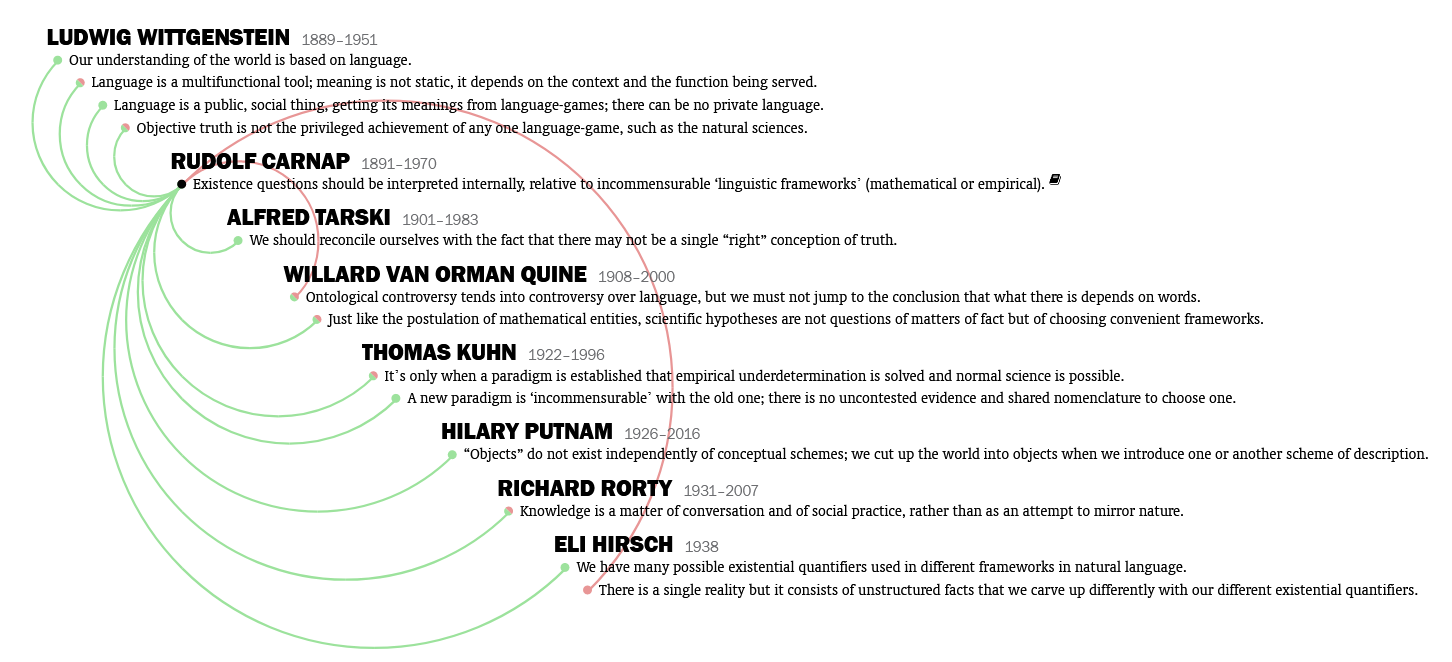
The thread about death and the afterlife got richer with the additions to Augustine, Aquinas, and Paley.
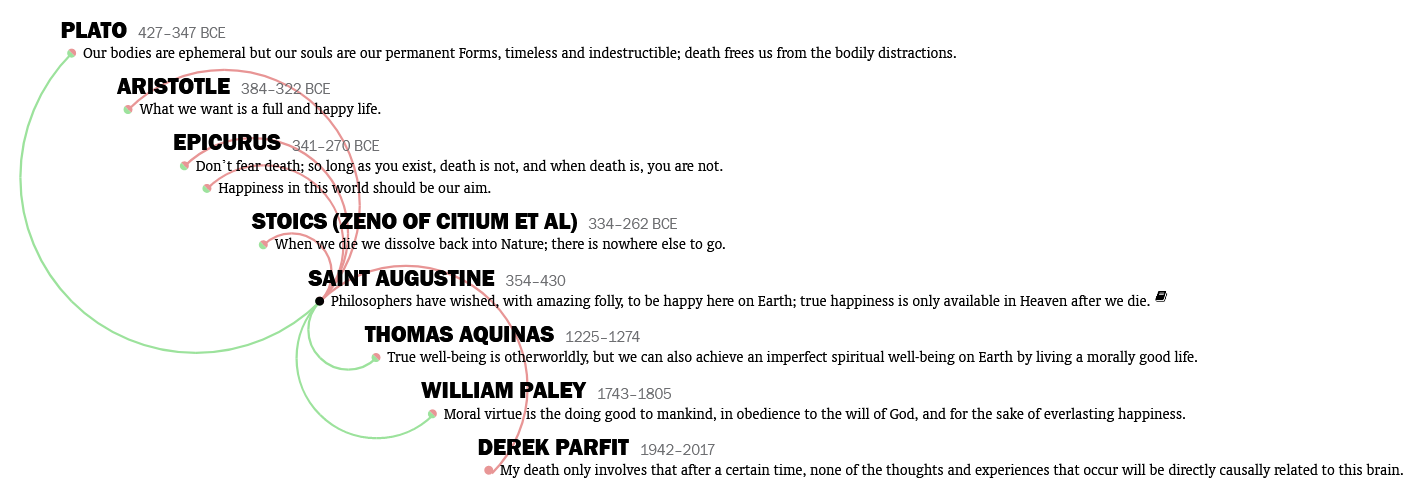
And I finally included Jackson’s famous change of mind on qualia.

As I wrote in the previous post, I plan to work on aesthetics next, but first I want to take a fun break by reading some philosophy of biology (which may or may not generate content for this project).
The usual reminder: You can browse the whole thing here.
Subscribe to Updates
Follow & Support
RECENT UPDATES
- Poincaré, Eddington, Gombrich, Laudan, Van Fraassen, Worrall, Ladyman Added; Anselm, Duhem, Grice, Williams, Kripke, Lewis, Boyd, and Others Updated
- ‘Basics’ Filter for the Uninitiated
- Reid, Barthes, Habermas, Varela Added; Leibniz, Kant, Ramsey, Sartre, Beauvoir, Foot, Clark, and Others Updated
- Dynamic URLs
- Getting Help From AI to Tag Sentences
- Interface & Content Upgrade: Tags, Improved Search, Dark Mode, and More

